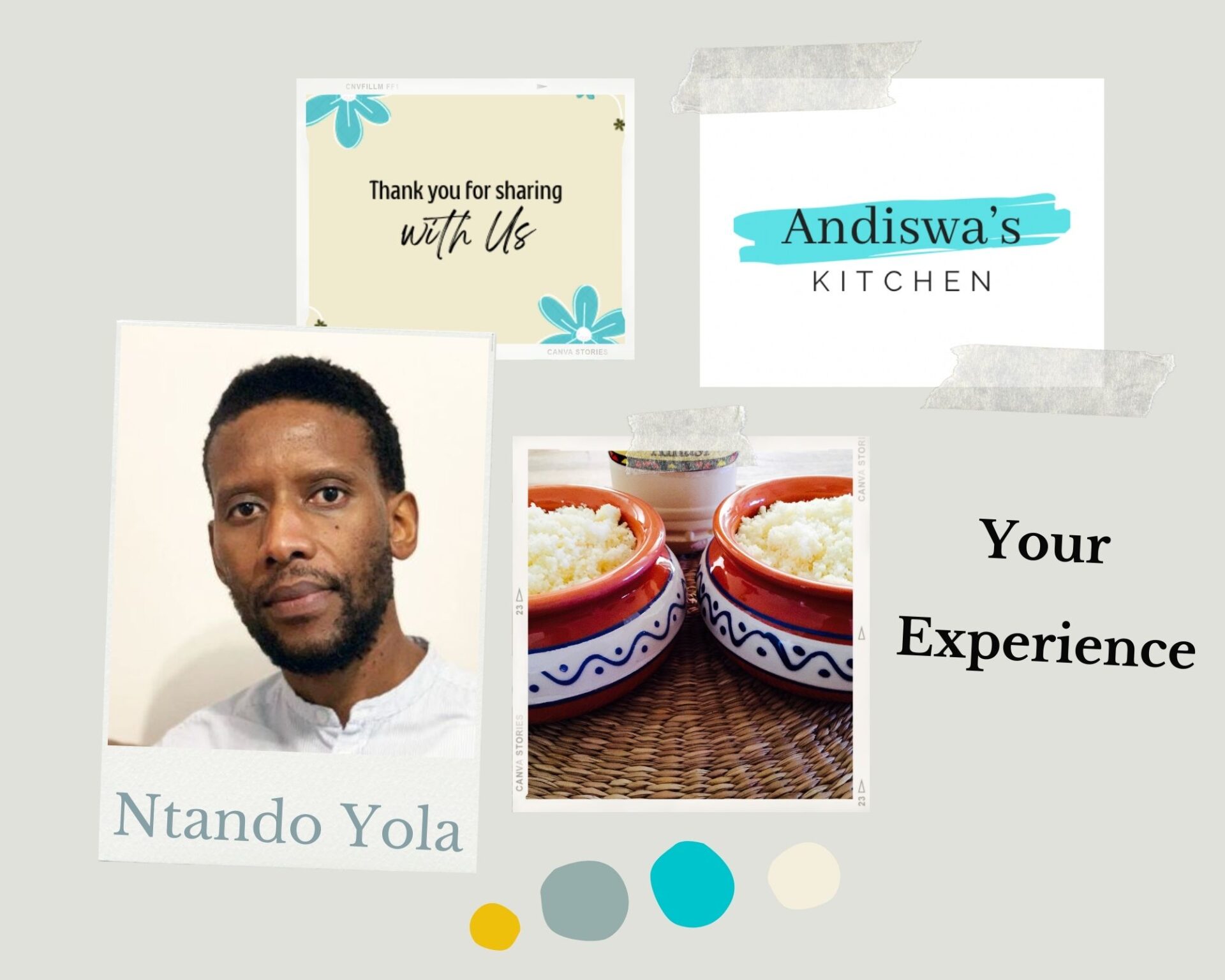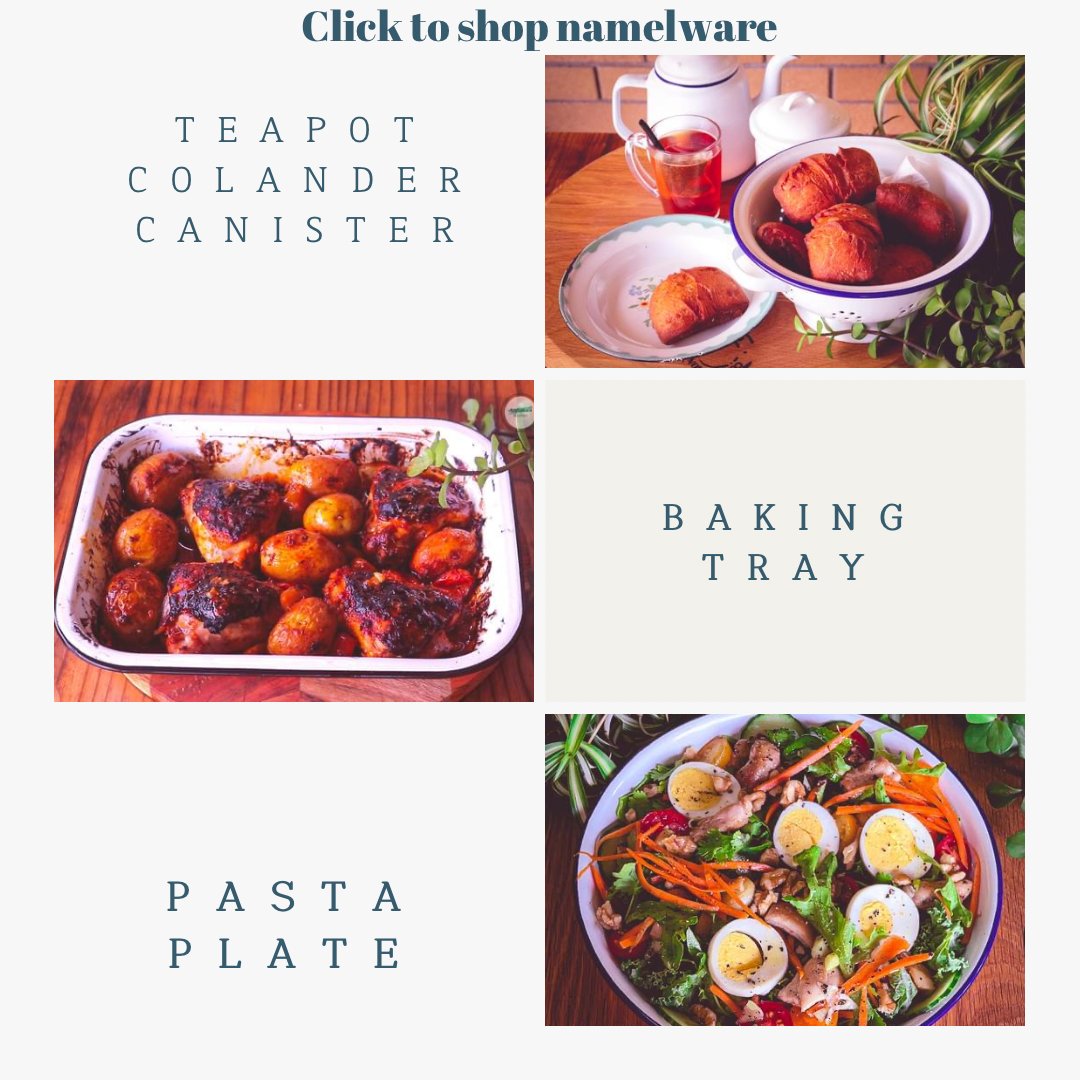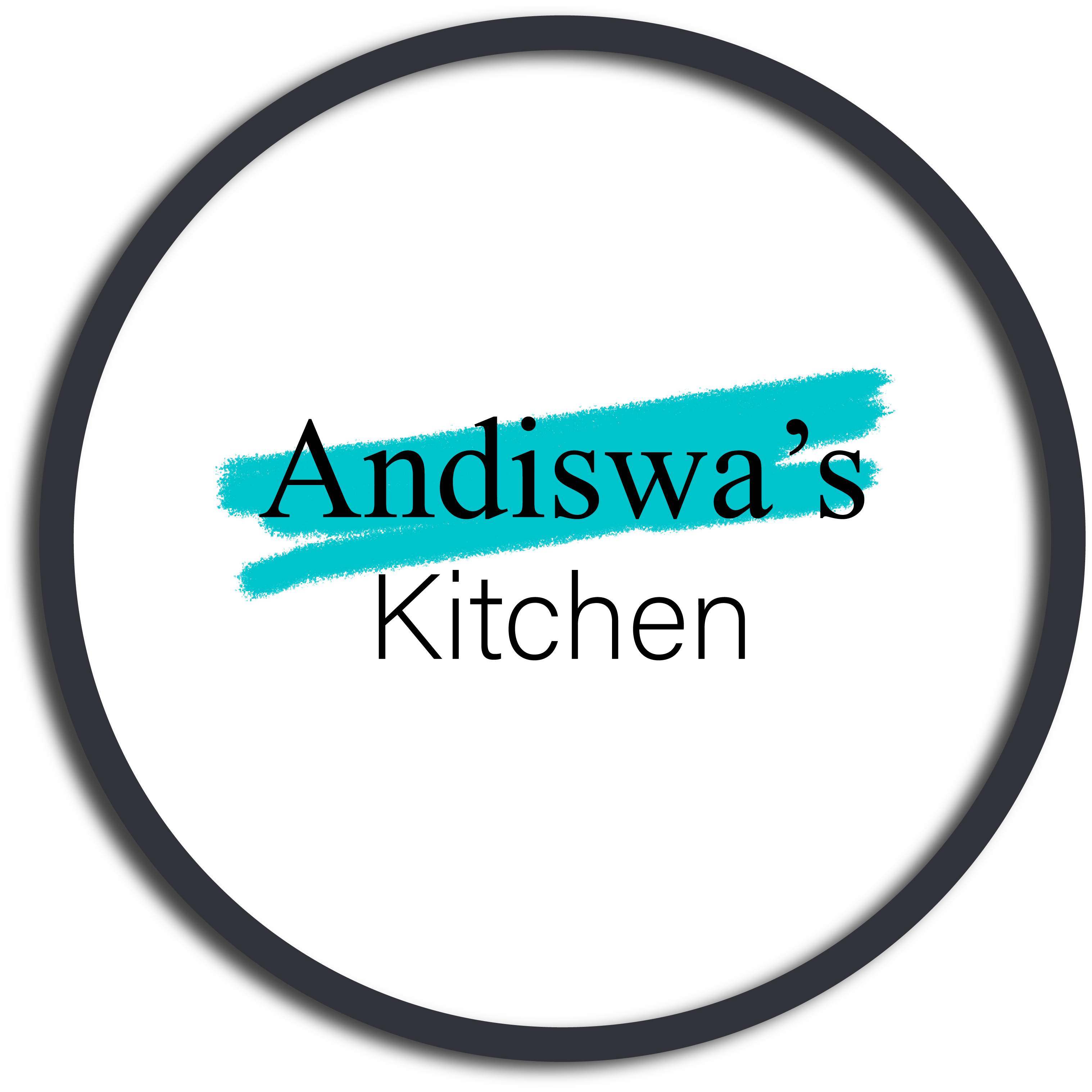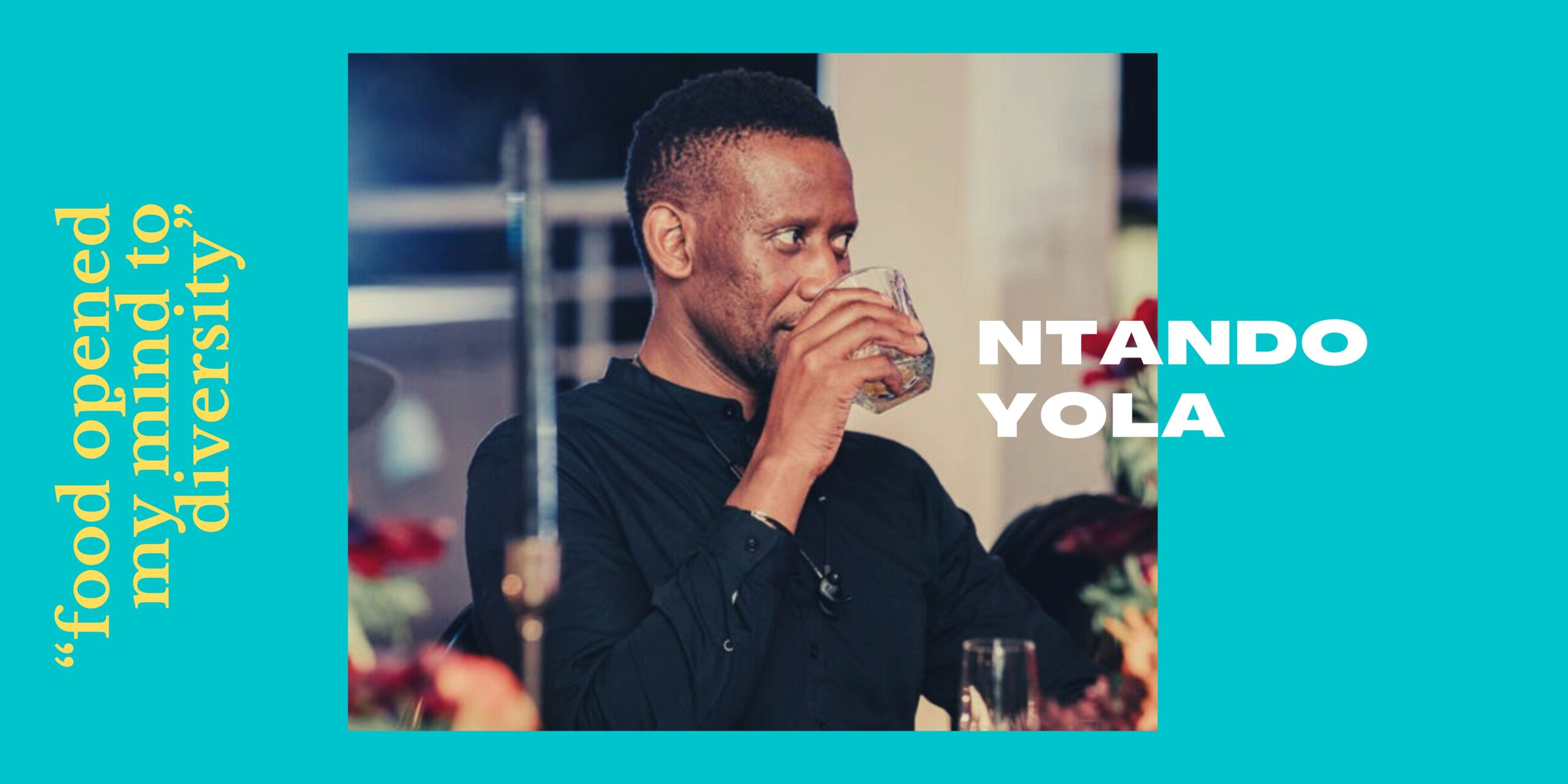
……food as the ‘medicine for the body and soul’

Then food for anytime of the day from my Eastern Cape upbringing included an assortment of fruit and vegetables, to meat, mostly chicken and occasionally mutton or beef. Top of the list of my dishes of choice, even though there wasn’t much choice, include umqa (pumpkin or melon cooked with mealie meal), umfino (an assortment of garden or wild leaves cooked with mealie meal), isigwampa (just garden leaves soaked in hot water and seasoned), umngqusho (samp and beans) – still top of my favourite to date, idhubhayi or isophu (fresh maize with beans), my occasional favourite – umvubo (crumbly pap with sour milk), isonka sombhako nesamanzi (potbread and steamed bread), just to name a few. Actually, looking at this, there was quite a long list of foods to choose from, of course, depending on the socio-economic circumstances as that unfortunately determined if there’s food on the table or not for most families.
One of the most things I appreciate about my childhood enjoyment and experience of food, is that, half the food I ate could be easily traced where it comes from. For a lot of our mealie meal we used dry corn that I carried on a pillow every Saturday, to a shop that had long queues of us waiting for a turn to have our corn processed on a milling machine, for R1. If my memory is serves me well, the rest of the vegetable, seasonal maize and fruits were from the garden and some in the wild.
With that said, came urbanisation, and most of those experiences are only in memory and intentionally rekindled by searching for the foods to prepare when possible. Interestingly though, a lot of the fruits we easily found anywhere in the villages, I have to now buy them in very special food stores and are expensive. The memories have nonetheless, in many ways shaped how I experience and enjoy food.
‘Umbona umnandi ngokuchubelana’ this IsiXhosa phrase tells so much about the sharing of food, which for me, is a core value of how food cannot only be enjoyed, however, its ability to bring people together is profound. I believe, it is for this reason that there are so many sayings that refer to food. Another one that speaks to me, refers to food as the ‘medicine for the body and soul’. I love food and in fitting with this quote, my approach to food choices and enjoyment is exactly that. To take a good medicine for my soul and body. Equally important characteristic, is its ability to bring people together, from close to extended family and a community at any given context. At integer ut urna, augue pretium gravida diam, placerat aliquam neque pellentesque auctor ipsum pellentesque eu eu est sit phasellus vitae tempor nec elementum.
Food has the ability to transcend cultural divides, and most importantly, strangers can form deep connections through the enjoyment of food, and I believe in the world of social media today, food is just as equally a point of connection.
If I have to remember my childhood experience of food, because I believe my food enjoyment and relationship is informed by those experiences. Be it from the food we were compelled to eat as children to some of our preferred dishes and to the special Sunday dishes, then the food enjoyed during special cultural or traditional events or celebrations (imicimbi). All those formative years’ experiences have collectively influenced how I appreciate food today.
The morning porridge (isidudu) was a compelled eating routine to break ones fast. It was made from fermented yellow mealies or mabele made from sorghum. However, it is one that I grew to enjoy and strangely in my adulthood it becomes a food of choice on rear mornings or even anytime when I crave it. So, I always keep a pack of either coarse sorghum or yellow mealie meal flour at home. As both of these can be a rear find in Cape Town, I often go on a shopping hunt for these and find them in the rear stores that sell them. If it’s either too far and the the craving is overwhelming, then polenta is always a close alternative.
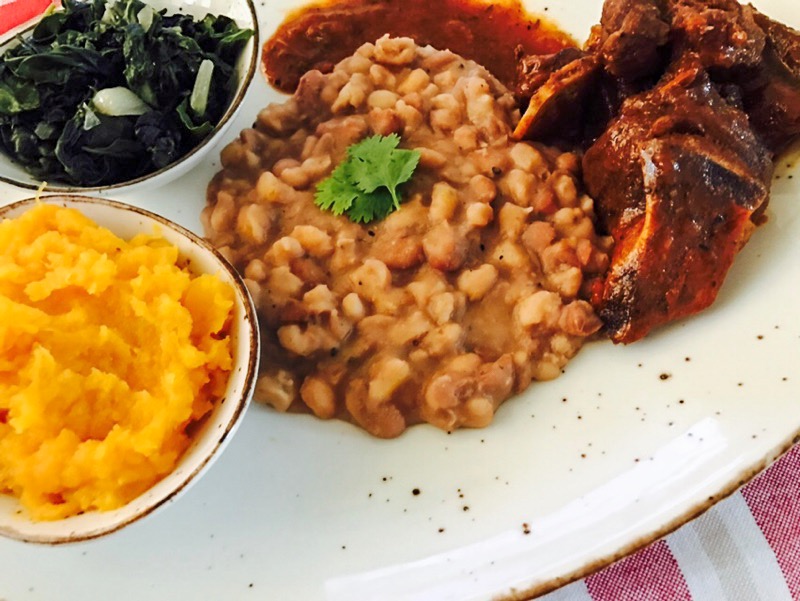
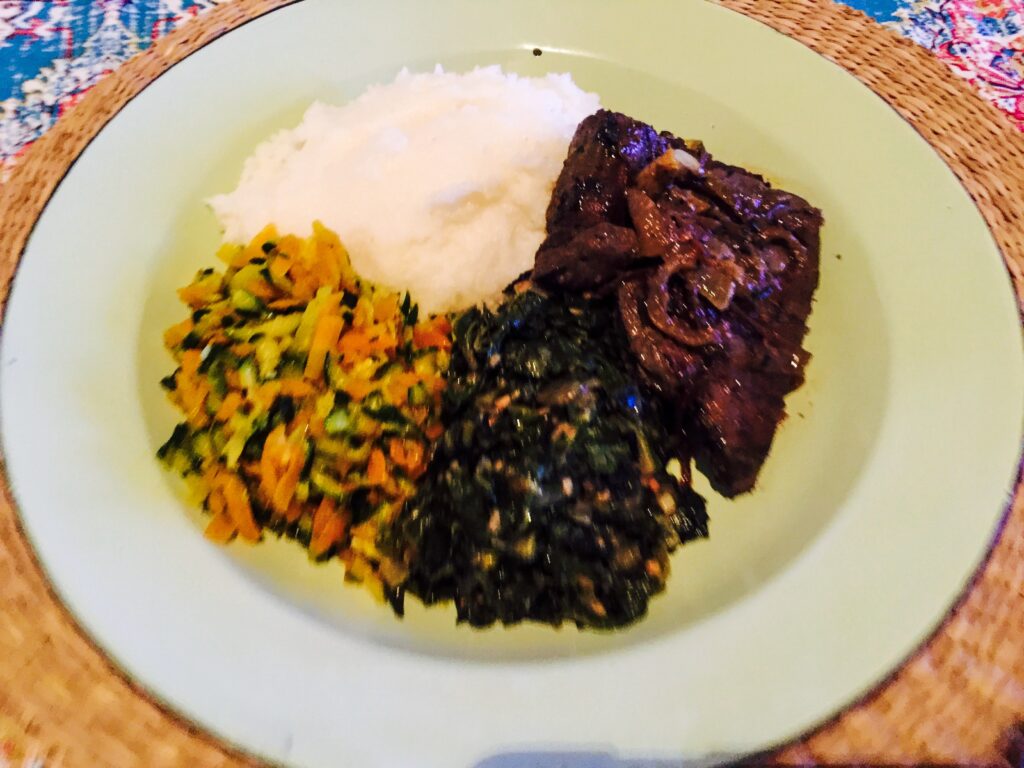
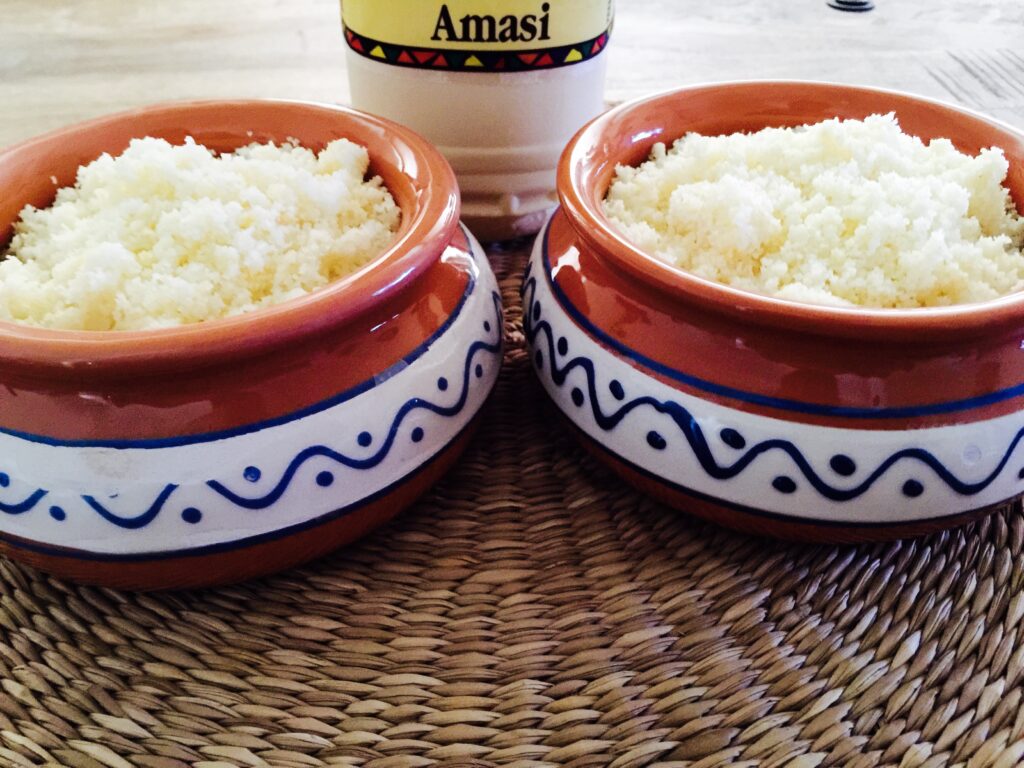
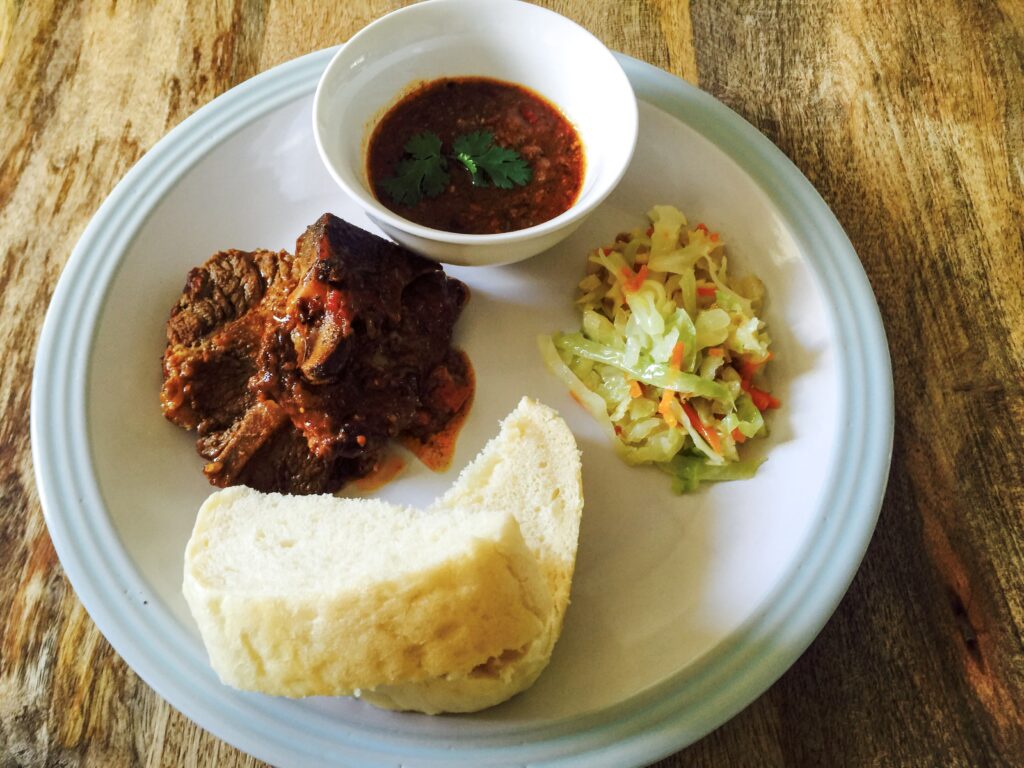
My present life and food experience, is partly shaped by moving out of my village to the towns where my mother worked, albeit, in the Eastern Cape. Mbizana, a sub-tropical town, is one I moved to at the age 6, where my mother worked in a hospital, which meant we lived in a shared compound and food was only seen in the cupboard and mostly coming from a supermarket. Nonetheless, it is in this town where I met my fruit love and this is mango, such that at that age, apparently when referring to the word “fruit” , I only meant mango, and everybody would know. I would name the rest either bananas, peach or any of their names.
Of course, this is also where I remember oatmeal and milk for breakfast. Later on in my youth, my mother introduced me to multiple approaches of making food and instilled healthy choices to eating.
Can curry be from cheese? Yes, in India.
When I moved to Cape Town to live alone as a young adult, these experiences carried me when it came to food. Travelling within South Africa, from one province to another, where food is the same with an addition of a few unfamiliar delicacies, food opened my mind to diversity. I have also been fortunate enough to travel around the world and food is one of the first things to look for, especially after airport and airplane food. Food from the African countries is one of my most fulfilling and exciting food experiences. The Namibian mahangu porridge, injera from Ethiopia, cassava in Uganda and tilapia both in Kenya and Uganda. These and many other distinct foods and flavours are what I enjoy in Africa.
While Durban, in South Africa will make you feel you know (all about) and appreciate curry, and that’s what I thought until I visited India. Holy Shiva, can there be so many curry dishes on earth and only from vegetables, no meat, then there’s meat. I was then schooled and my mind was opened as I appreciated paneer curry. Can curry be made from cheese? Yes, in India. In one rural place I visited, I spent time around a tandoor oven where they made naan bread. Our language was facial smiles, hand signals to explain things, but naan bread and that fire made us understand each other somewhat. What an experience!
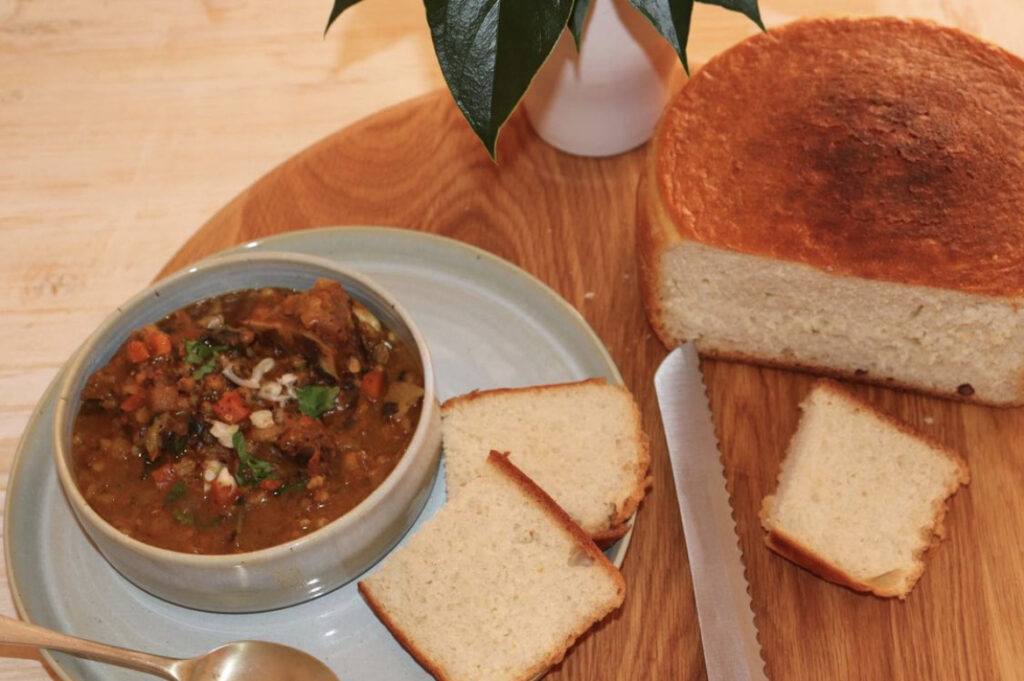
Curry has since formed part of my standard response when asked about my favourite dish. This then led me to Thai curry which I got introduced to during my occasional work trips to the US. A hunt for the closest to familiar food led me to ShopHouse Southeast Asian Kitchen, or simply ShopHouse which served what my taste buds characterised Thai food as the best I’ve tasted. Sadly, it closed down and had me in search of Thai restaurants anyway. I can’t wait to go to Thailand.

Europe is one of the regions where there’s not so much great food experience, I hope it is not because of my urbanization experience that took my childhood food experiences. I have enjoyed the variation of breads though, when connecting either in France or Germany at the airport, and of course, some beer. In the Netherlands I always enjoy beer, bread, cheese and the raw fatty slime herring was one of my food adventures. I enjoyed my second herring fully because my first was snatched by a seagull before it reached my mouth in Groningen.
Generally, food during travels provides adventure whilst hunting for familiar dishes, you end up stumbling on the unfamiliar and learning about the countries’ food which automatically teaches about their culture. That was the case in Mexico, when I realised for the first time that, one can enjoy mango with chilli. I can’t leave out what the cultural foods Brazil can offer, with coconut being an ingredient in most of the foods, from drinks to stews and bread.
My food experiences heal and energise,
food is my friend wherever I go for the health of the body and the soul. I actually think alcohol is also food or at least goes down well with most of the food.
